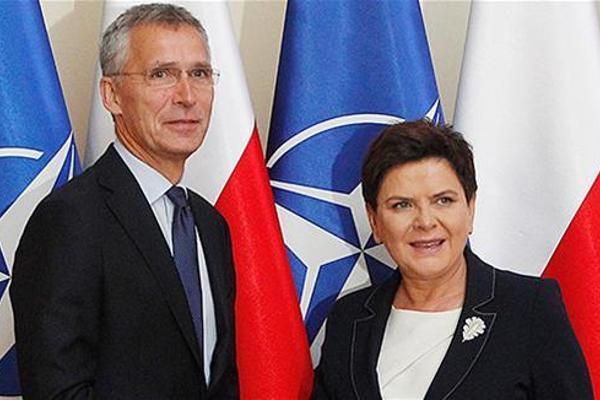NATO chief demands Russian ‘transparency’ on war games


Stoltenberg, speaking at a joint press conference in Warsaw with Poland's right-wing Prime Minister Beata Szydlo, urged Moscow to respect international conventions on keeping other countries informed of the manoeuvres.
Zapad 2017 ("West"), has stoked alarm in NATO members Poland and the Baltic states, all former members of the Soviet bloc.
It takes place in Belarus, which border three NATO member states, and comes as a more assertive Russia pushes back against what it sees as the alliance's unjustified expansion into eastern Europe.
"I call on Russia to ensure compliance with its obligations under the OSCE Vienna Document, because predictability, transparency is especially important when we have increased military activity along our borders," said Stoltenberg.
The Vienna Document requires signatory nations to provide advance information of exercises and to allow observer teams to avoid any dangerous misunderstandings.
On Aug. 25, he vowed that the alliance would "be watching very closely as this (Zapad) exercise takes place next month" in Belarus, which borders alliance members Latvia, Lithuania and Poland.
Russia's Interfax news agency reported this week that the Belarussian defence ministry had invited observers from seven countries: Ukraine, Poland, Lithuania, Latvia, Estonia, Sweden, and Norway.
Russia has dismissed the concerns over the exercises.
Meanwhile, Russian nuclear-capable strategic bombers have flown a rare mission around the Korean peninsula at the same time as the United States and South Korea conduct joint military exercises that have infuriated Pyongyang.
Russia, which has said it is strongly against any unilateral U.S. military action on the peninsula, said Tupolev-95MS bombers, code named “Bears” by NATO, had flown over the Pacific Ocean, the Sea of Japan, the Yellow Sea and the East China Sea, prompting Japan and Seoul to scramble jets to escort them.
The flight, which also included planes with advanced intelligence gathering capabilities, was over international waters and was announced by the Russian Defence Ministry on the same day as Moscow complained about the U.S.-South Korean war games.
“The U.S. and South Korea holding yet more large-scale military and naval exercises does not help reduce tensions on the Korean peninsula,” Maria Zakharova, a spokeswoman for the foreign ministry, told a news briefing in Moscow.
“We urge all sides to exercise maximum caution. Given the arms build-up in the region, any rash move or even an unintended incident could spark a military conflict.”
